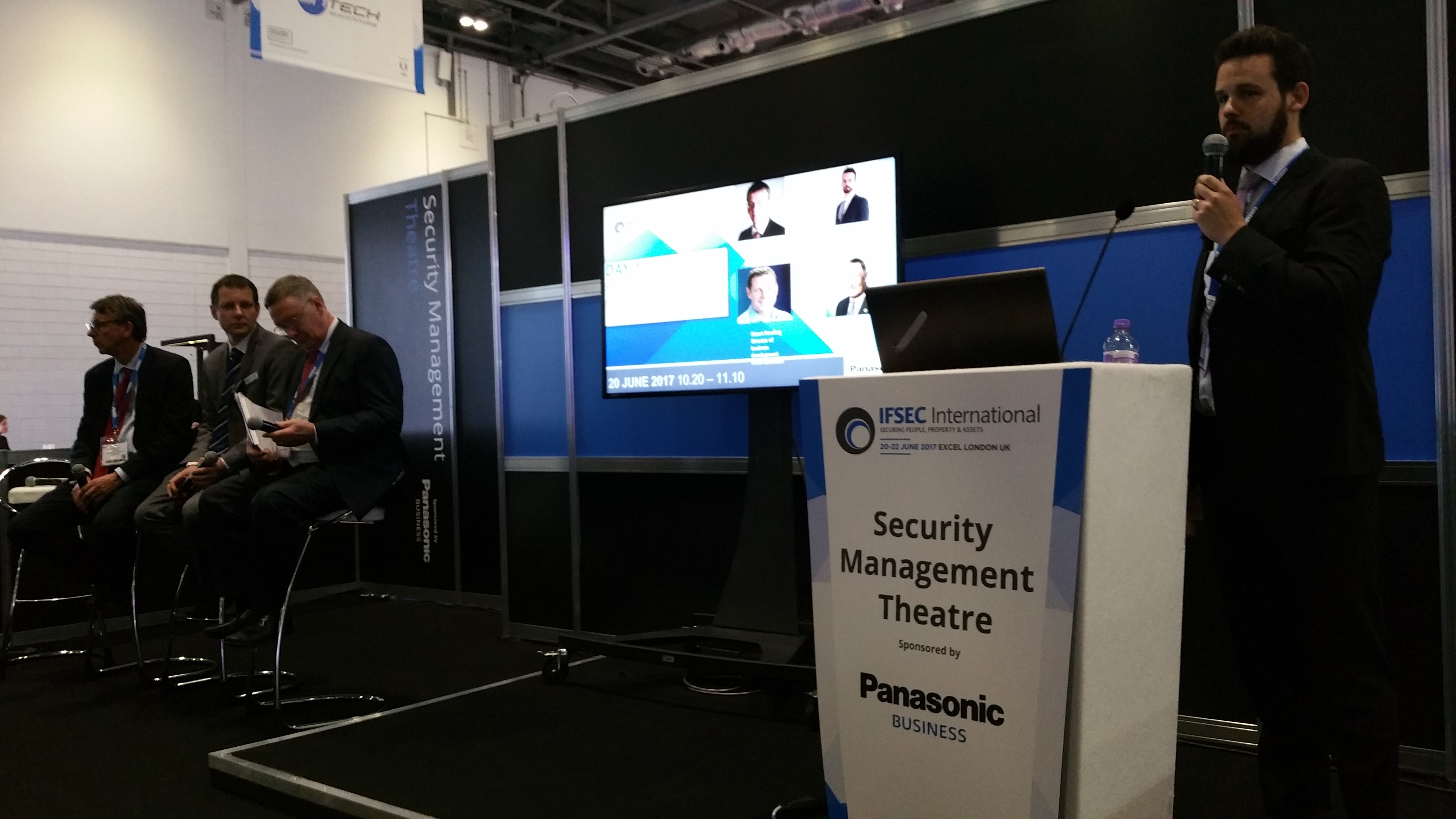There are two types of businesses – those who know they’ve been hacked and those who don’t know they’ve hacked – a leading security expert has said.
Stuart Rawling, director of business development at Pelco Schneider Electric, made the stark warning at the event’s opening panel ‘Current trends and future of the industry’.
Rawling said businesses must have a solid security plan in place which brings together both human and cyber elements.
“There is a risk of getting an antivirus solution and hoping that will solve everything,” said Rawling. “An antivirus won’t help you against a zero-day attack – by its very definition it’s unknown.”
The theme that rapidly-advancing security technology cannot be expected to tackle threats without a human element and robust planning was a key element of the session.
Professor Martin Gill, perpetuity research & director at industry awards the OSPAs, warned that “leaving it to technology and it hoping it will all be ok” is a dangerous path for the industry.
“We should be holding on to the human element. I speak to a lot of offenders, and one said to me recently ‘technology doesn’t jump off a wall and arrest you’.
“I just interviewed 12 heads of retail and 12 loss prevention directors. And when asked what their best security system is they all agree: their staff.”
Rawling agreed, saying he “doesn’t see a day coming soon” where a physical security guard is not deployed.
“Ultimately there still needs to be a human decision made on what to do,” he said.
“A response plan still requires a human response. What do you do when something happens? That’s where security fails most often – the operating procedure, not the technology.”
Fellow panellist Tony Weeks, head of technical services at NSI, said that technology cannot be implemented without human expertise.
“No matter how advanced the technology, you will still need people to configure and look after the systems,” he said.
The most important consideration is an “outstanding” security policy which addresses all aspects, the panel agreed.
“When I speak to offenders about why they chose their target the answer is always the same – because it was easy,” said Gill. “That hasn’t changed over 30 years.”
Free Download: The Video Surveillance Report 2023
Discover the latest developments in the rapidly-evolving video surveillance sector by downloading the 2023 Video Surveillance Report. Over 500 responses to our survey, which come from integrators to consultants and heads of security, inform our analysis of the latest trends including AI, the state of the video surveillance market, uptake of the cloud, and the wider economic and geopolitical events impacting the sector!
Download for FREE to discover top industry insight around the latest innovations in video surveillance systems.


